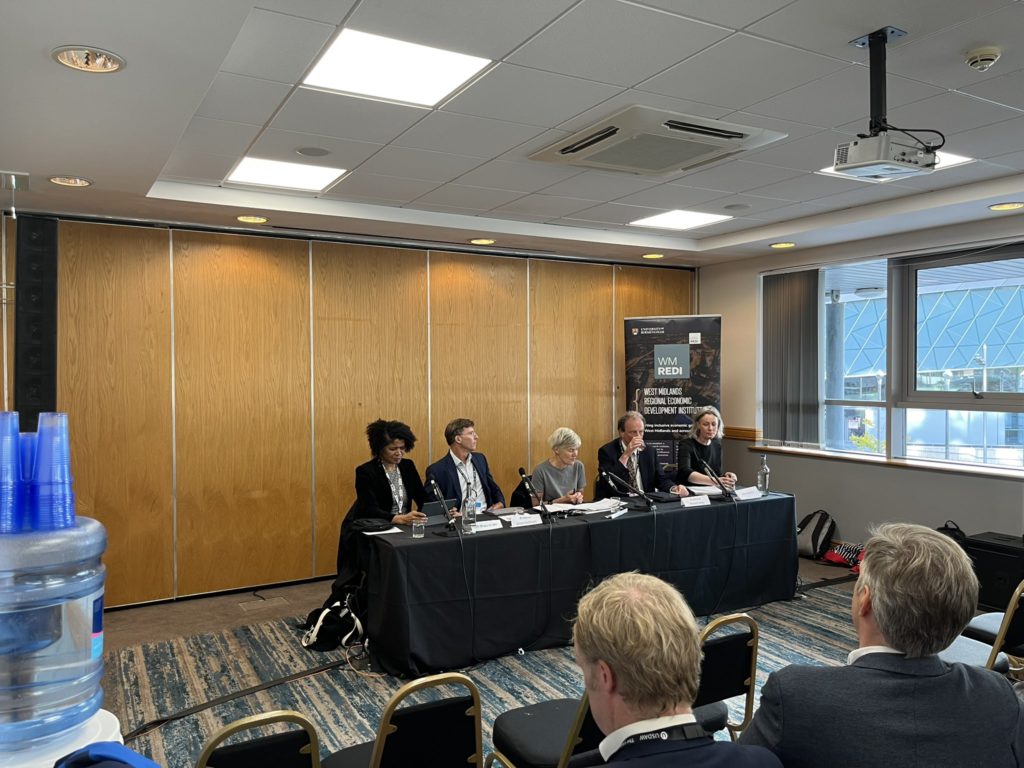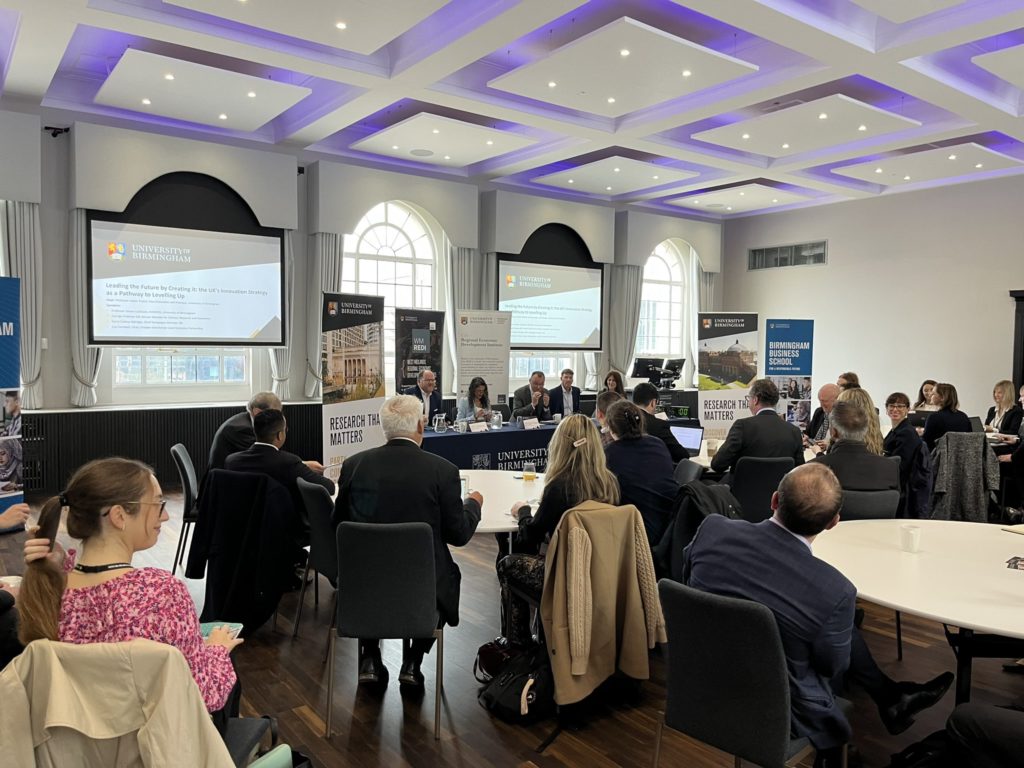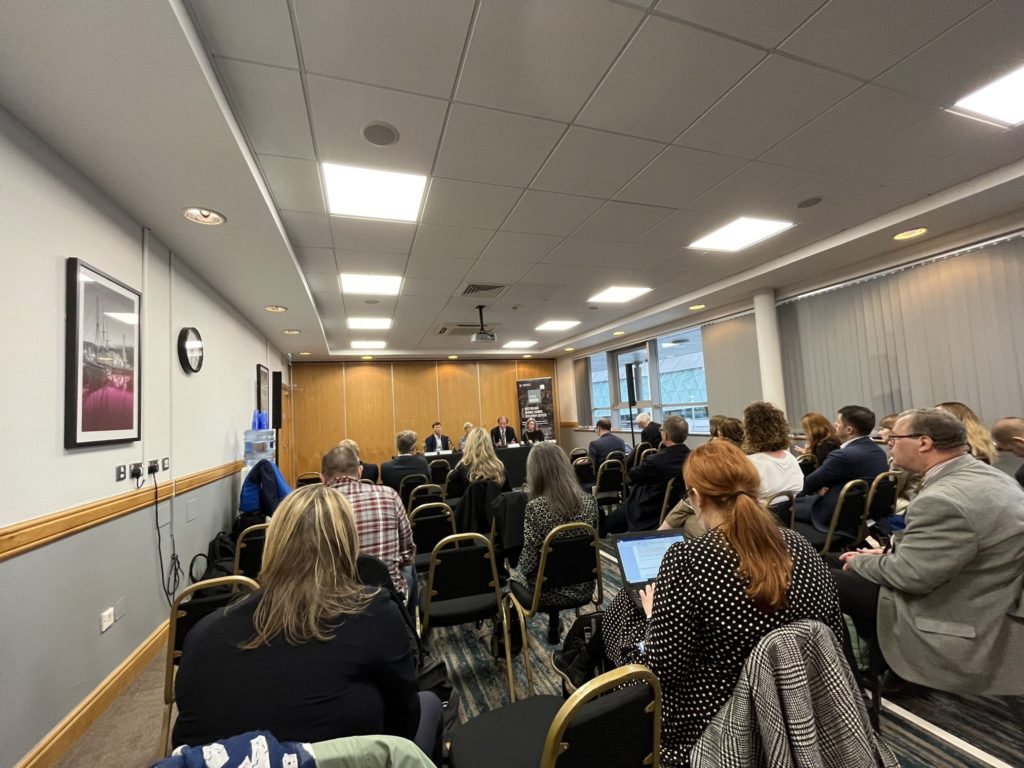
Steve Barwick writes about the approaches of the UK’s two major political parties to University R&D and Innovation.
City-REDI / WMREDI, University of Birmingham recently hosted fringe meetings at both the Labour and Conservative Party Conferences in order to gauge and explore the respective political party’s approach to university R&D and innovation, including its role in delivering inclusion.
What was striking, first and foremost, was the high degree of cross-party consensus regarding the critical importance of R&D to the growth and levelling up of agendas. We heard therefore of both parties’ aspiration to increase levels of public and private R&D – Labour’s target is 3% of GDP whilst Conservatives suggested that now their 2.4% goal has been reached (thanks to an ONS recalculation) a 3%, or even 4%, ambition should be set.
Of course, the devil is in the delivery. With the current cost of living crisis and the primacy of fiscal prudence, the prospect of greater public expenditure on R&D looks limited. And we heard the private sector is similarly cautious. However, we heard that all parties – political as well as the business and academic sectors – see the potential to put innovation at the heart of a reinvented and reinvigorated more industrial economy. They also want to see this agenda more closely linked to the levelling one so that innovation benefits more people and areas. Innovation is also critical for the UK to meet its legally binding net-zero targets.

Of course, joining up these goals presents challenges so it was helpful to hear at both events from colleagues in Greater Manchester (GM) about how their Innovation Accelerator Pilot is seeking to advance this agenda. Indeed there was strong support for the three Innovation Accelerator Pilots – in the West Midlands and Glasgow as well as in GM – to succeed so the initiative can be ‘rolled out’ in other areas.
During the meetings, it became clear that while some universities are very good at research – including the universities of Aston and Warwick as well as Birmingham in the West Midlands, too little university-based R&D finds its way into businesses. The commercialisation of R&D, notably to support local firms requires additional ‘innovation accelerators’ and ‘catapults’ to reduce the disconnects between research, innovation, investment, skills and enterprise. Lessons from existing catapults, such as the Manufacturing Technology Centre at Ansty in the West Midlands, should inform future investments in local ‘innovation zones’ and the work of City-REDI / WMREDI provides insights into ‘what works’ for inclusive economic growth in specific regions.
Universities’ potential to provide skills and groundbreaking R&D can – and should be – supported so it can be extended to more places outside the golden triangle and so that innovation is embedded in place-based change. Essential to ensuring this will be universities working with the private sector and combined local authorities to boost the co-production and commercialisation of innovation.

Given the persistence of spatial inequalities over the last fifty years, there is a very real imperative for the Departments of BEIS, DLUHC and DfE to work much more closely together to advance a joint agenda so national higher education, skills, innovation and levelling up policies are aligned and also joined up to local place building and regeneration. If the government advances this agenda positively we will hear that.
City-REDI / WMREDI, which has been at the forefront of the debate about university R&D and inclusive innovation, stands ready to further support this agenda in any way it can. It will continue to conduct academic research, convene roundtables as appropriate and collaborate with colleagues in Greater Manchester – and the West Midlands and Glasgow – and the Connected Places Catapult.
Read our work on Levelling up here.
This blog was written by Steve Barwick, Founder, Steve Barwick Political Consultancy, Associate, DevoConnect and Deputy Director, Smith Institute.
Disclaimer:
The views expressed in this analysis post are those of the authors and not necessarily those of City-REDI / WMREDI or the University of Birmingham.
